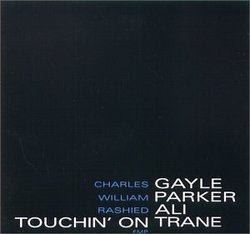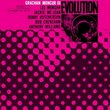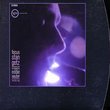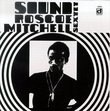| All Artists: Charles Gayle, William Parker, Rashied Al Title: Touchin on Trane Members Wishing: 1 Total Copies: 0 Label: Import [Generic] Original Release Date: 1/1/2008 Re-Release Date: 4/10/2001 Album Type: Import Genres: Jazz, Pop Style: Avant Garde & Free Jazz Number of Discs: 1 SwapaCD Credits: 1 |
Search - Charles Gayle, William Parker, Rashied Al :: Touchin on Trane
 | Charles Gayle, William Parker, Rashied Al Touchin on Trane Genres: Jazz, Pop
|
Larger Image |
CD DetailsSimilar CDs |
CD ReviewsSpeaking in Tongues Christopher Forbes | Brooklyn,, NY | 01/23/2004 (5 out of 5 stars) "Charles Gayle - Touchin' on TraneThe story of Charles Gayle is a modern day Romantic legend. A veteran of the New York free jazz scene of the late 60s and early 70s, Gayle could never quite fit in with the scenes in the city. His aggressive saxophone style dominated the groups he played with at a time when the idea of the "collective" was in the air. Gayle's tenor style was as aggressive as Albert Ayler, and perhaps even more uncompromising. So somewhere in the early 70s he disappeared onto the streets and remained there for almost 20 years, playing for change and living where ever he could. In the late 1980s he was rediscovered by the manager of the Kitchen in New York and he made a triumphant return to performing and recording. Gayle has definite scars from his years on the streets. And he also has a reputation for ideas that are not politically correct. Gayle is a born again Christian and makes no secret about it, with a heavily religious content to the titles of his albums and in some club dates, monologues at the audience about religion, morality and abortion, all fueled by his religious background. This has caused Gayle to be boycotted by some clubs. But if one can get past the politics and disagreements that you might have with his religion, Gayle is an astonishing musician. This album, Touchin' on Trane, is perhaps the best recording to introduce yourself to the wild art of this unique artist.The trio on this group includes the marvelous William Parker on bass and Coltrane's final drummer, Rashid Ali. The combination could not be better. Parker and Ali work together like hand and glove. Parker is unique among his generation of free jazz bassists, in that he is not afraid of a groove. Parker can do a free walk with the best of them as is evidenced by the first cut on the album. Ali made his name as the drummer who drove Elvin Jones out of the Trane ensemble, and as a musician who did away with pulse in a quest for a free music devoid of the "tyranny of the beat". And yet, on this album, Ali shows he can swing as hard as any bebopper. Together, they form a terrific bass over which to feature Gayle's wild blowing.Gayle himself is a wonder on this album. His style is influenced by the overblowing of the Albert Ayler school, particularly the early trio records Ayler made. But if you listen you can also hear the roots of this music in the primitive Gospel music of Pentacostal churches. Gayle in fact believes that the music he heard in black churches was as free as any avant-garde music. Much has been made of the "glossalia" aspect of the music of Albert Ayler. The same could be said for Gayle. His improvisations are more than just music; they are truly "speaking in tongues". All of the cuts on the album are freely improvised, with not tunes or heads. Gayle's improvisations start out where other musicians end...at a fevered pitch, and they go up from there. This is extreme music, extremely well played. The cuts range from up tempo numbers to fast, unmetered pieces, to wide, Ayler-style ballads. Gayle's voice on tenor is dominating, but always controlled. Gayle is perhaps one of the best documented of modern free jazz musicians. This recording, though it doesn't include any examples of Gayle's unique alto style or his individualistic approach to the piano, or his work on bass clarinet, is still perhaps the best place to begin exploring this important improviser. The sound is strong and compelling. And, for those who have difficulty with the musician's belief set, this one makes no reference to these beliefs. Progressives can listen to this album with a clear conscience." An excellent set Stephen | Virginia Beach, VA USA | 08/24/2000 (5 out of 5 stars) "Unlike other reviews, I believe this set, more than anything else I've heard, carries on the spirit of Coltrane. This music does "TOUCH" on Trane from time to time. With Ali (a former drummer for Trane) and Parker (a Garrison student) as a rhythm section there are some obvios references to Trane. Gayle's playing here is also in that tradition. While Gayle's Live From the Knitting factory sets have a strong Ayler feel, I don't find that to be the case on this one. And the reference to Coleman is strange since Gayle's tone and playing style bear no relation to Ornette.Its a great CD, not nearly as "out" as Gayles other work." The quintessential Charles Gayle album Stephen | 02/26/1999 (5 out of 5 stars) "Although it is named after John Coltrane, this album owes more to Albert Ayler and Ornette Coleman. The fact that Rashied Ali plays on it is sure to draw comparison to late period Coltrane, but Gayle plays more anger and less delicacy than Coltrane, which makes the overall feel of this album thoroughly modern. To add to this asthetic, William Parker plays with unrelenting endurance to provide a solid, though thundering, foundation for the trio. This album is no stretch for Ali. He plays with usual graceful explosiveness (how many crash cymbals does that guy have?) This is the quintessential Charles Gayle album."
|

 Track Listings (5) - Disc #1
Track Listings (5) - Disc #1

